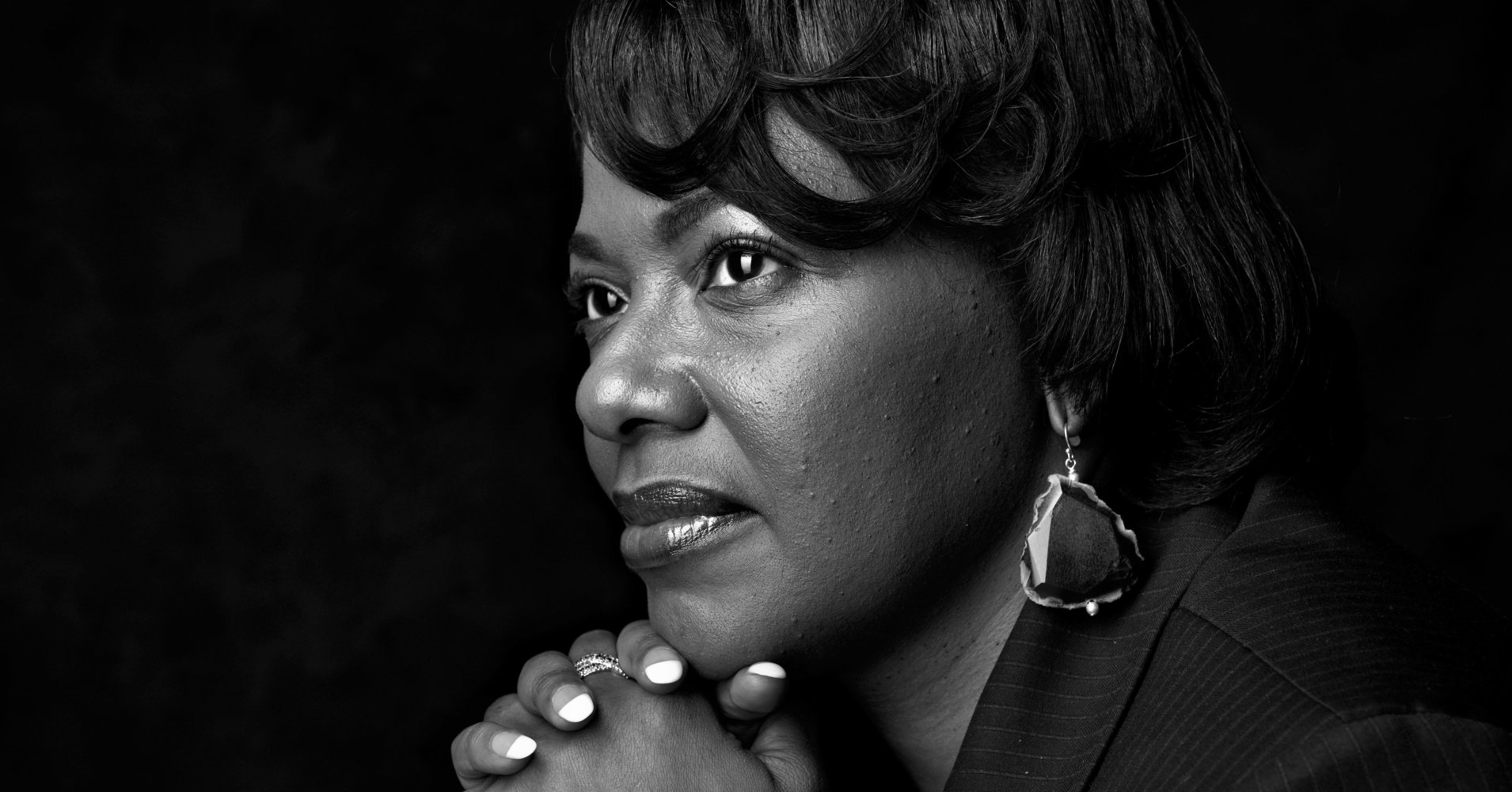[ad_1]
Bernice King had just turned five when she learned of her father’s assassination.
It was 7:01 p.m. in Memphis when Martin Luther King Jr. was shot, close to her bedtime, so she didn’t know about the tragedy until the next day. Her mother, Coretta Scott King, headed to the airport the next day. When Coretta returned to Atlanta on April 5, 1968, Bernice and her siblings were taken to the airport to meet her and board a plane.
There would be no more dinners with Daddy. No more showering him with kisses when he came back from a trip. This was her introduction to death.
“My mother realized at that point she hadn’t prepared me,” Bernice told HuffPost during a recent phone interview. “And so, she had to explain to me that, ‘Your daddy’s dead, when you see him, he’s going to be laying in a casket. He won’t be able to speak to you, and his spirit has gone to live with God.’”
On April 9, the day of the funeral, Coretta played a portion of the sermon her husband had delivered just two months prior at Ebenezer Baptist Church, in which he prophetically gave his own eulogy.
“And again, remember, she told me he couldn’t talk to me, but a child knows their dad’s voice,” Bernice said, recalling her mother’s lesson about what spirits were through a simple hug and “Mommy loves you.” “So I started looking around for him.”
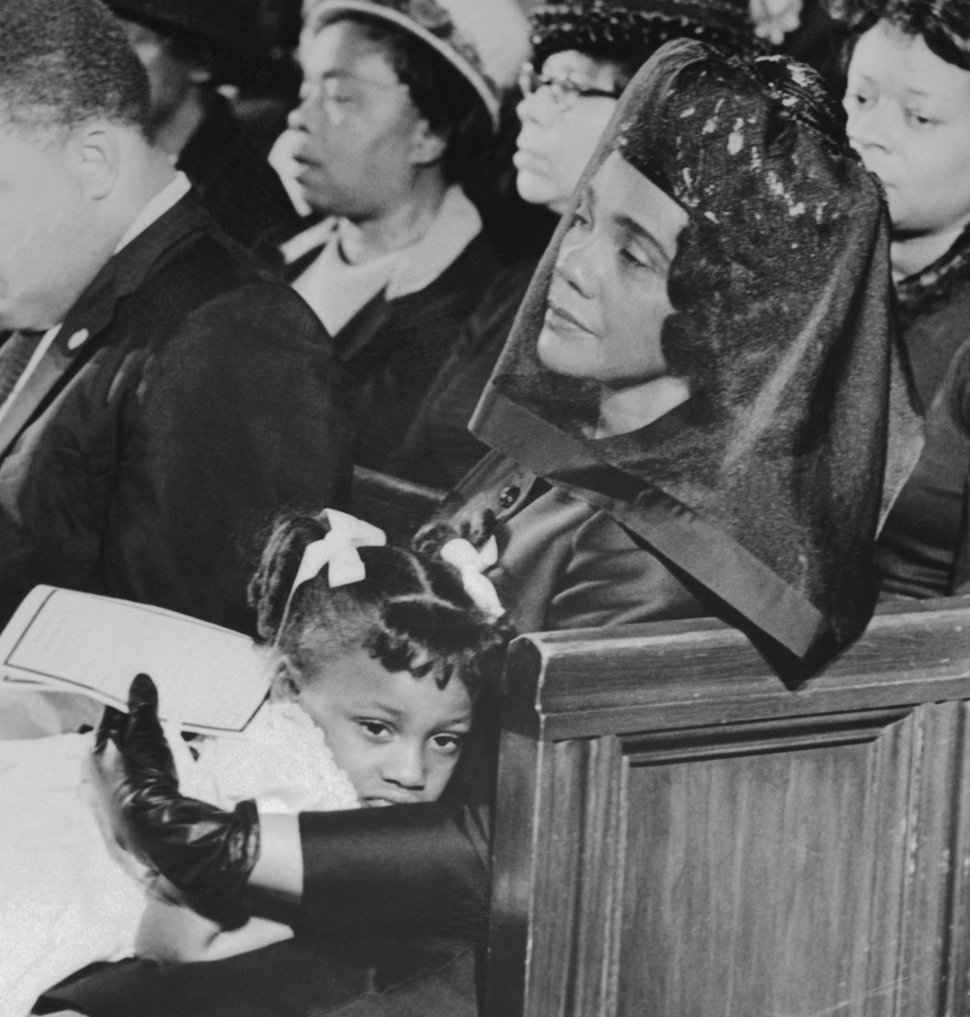
Even days after his death, the civil rights leader managed to deliver a timely message at his own funeral. Previous assassination attempts, FBI surveillance and constant threats didn’t make it too impossible for King to foresee his own killing. But his teachings brought wisdom and foresight that carry on ― even 50 years later.
The question has been asked time and time again, quite possibly more recently than ever before: What would King say if he were alive to see the world today?
According to his daughter, he’s already said it.
“Dr. King, who fought against … what he called the triple evils of poverty, racism and militarism, is very relevant to us now, and I think we need to heed some of the things that he was trying to instruct us on while he was with us,” Bernice said.
The minister fought many battles during his lifetime. He helped challenge racism in the South with boycotts, sit-ins and marches in the spirit of what’s known today as Kingian Nonviolence. For over a decade, King put his life on the line during these demonstrations and was instrumental in bringing forth the Civil Rights and Voting Rights Acts.
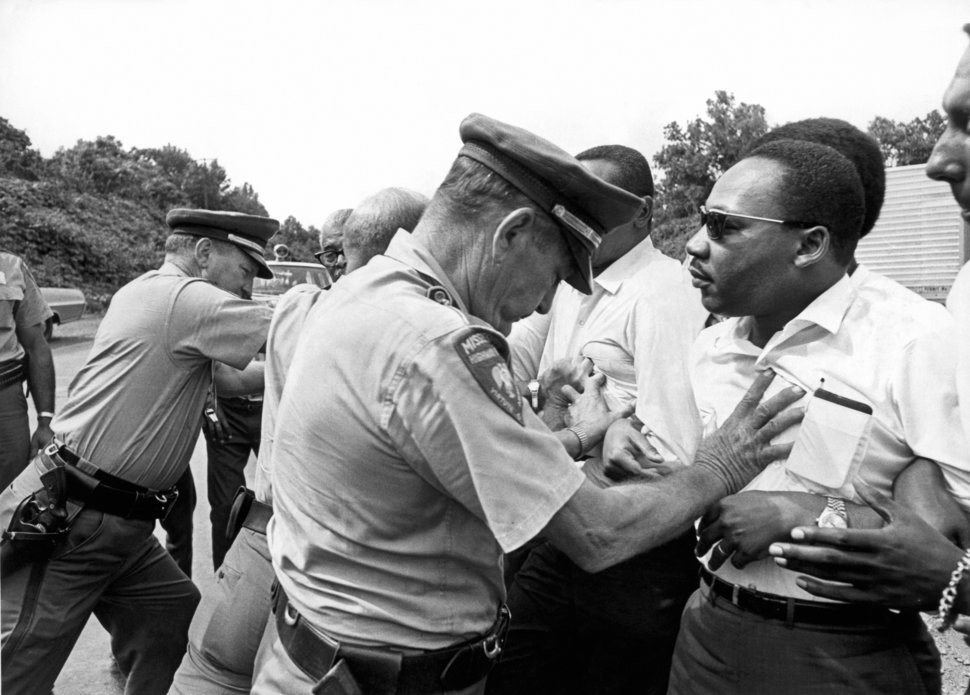
King was more than a dreamer. He gave about 450 speeches a year and wrote five books. Through his extensive log of works, especially in his final three years of life, King expressed radical thoughts about socialism, anti-militarism (during the Vietnam War) and a global revolution for civil rights.
He was also seen as a threat to those who didn’t want to relinquish power. Toward the end of his life, his influence had gotten too great to be contained. King’s family doesn’t believe that James Earl Ray killed their father, Bernice said. They believe his assassination was an organized effort (12 jurors later agreed with them, ruling his killing as a result of conspiracy in 1999).
Death was a new concept for young Bernice at the time of her father’s assassination, but it became a familiar theme. Her uncle, A.D. King, was found dead in a pool the following year. Her grandmother was shot in church a few years after.
Bernice admits she was not OK. She said her mother was the binding force that held her family together through tragedy and maintained a sense of normalcy. Coretta continued to carry the torch she held high during her husband’s life, fighting for equality each day, even as she mourned her personal trauma.
“[My mother] was really a super woman; she raised four kids while helping to raise a nation and keep it from teetering on the edge of violent, just continual violent outbreaks. Yes, there were riots after my dad was assassinated, but really, I think her posture on April the 8th when she went to Memphis to lead that march he was scheduled to lead, and what she said was so critical to quelling some of the tension at the time,” she recalled, stating that her mother shaped the King legacy.
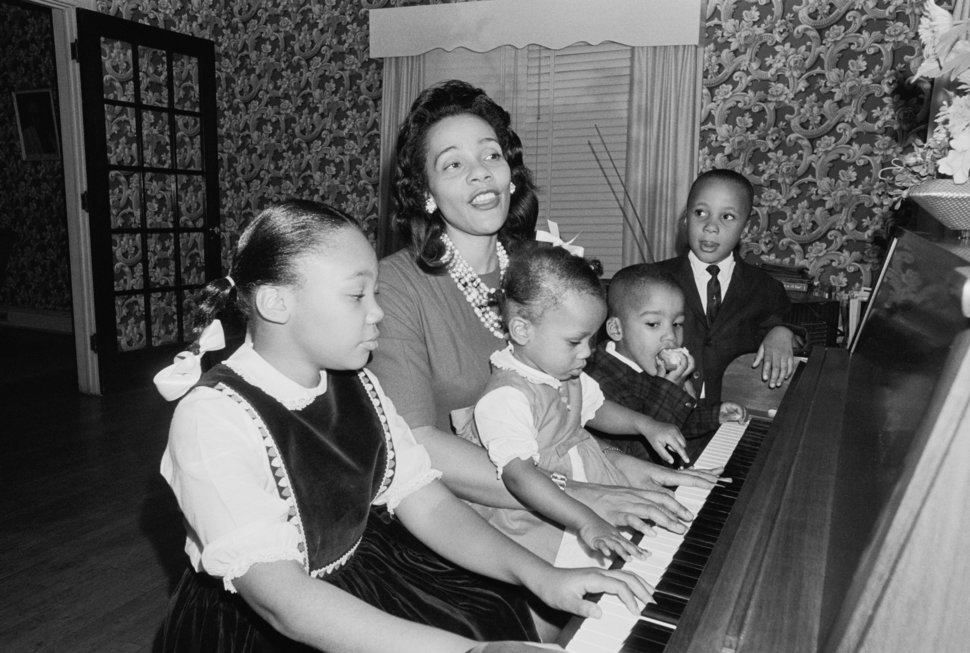
“For a man who was very hated, and one of the most hated, in fact, during the time of the assassination, and now one of the most loved in the world, and really that’s because of her work, her effort on the day-to-day basis,” Bernice added.
Despite the weight their name carried, Bernice said her mom never put added pressure on her. “You don’t have to be your father. You don’t have to be me, just be your best self,” Coretta would tell her.
Even so, it was Bernice’s calling to continue her parents’ mission.
The youngest child of four, Bernice chose to walk in the path of ministry at a young age. As her father did, Bernice married her faith with activism throughout her life, becoming the second woman to be ordained at Ebenezer Baptist Church and the first woman to be elected president of the Southern Christian Leadership Conference, a position she turned down.
Today, as the CEO of the King Center (founded by her mother), Bernice still upholds her father’s message of nonviolence, making sure his legacy isn’t watered down and that her mother isn’t erased from the conversation. She uses that spirit Coretta taught her about at age five to speak out against today’s injustices, especially on social media. She’s applauded Black Lives Matter activists who are on the front lines ― and are similarly tracked by the FBI ― and, more recently, the Never Again movement.
The times may have changed, but the message still applies.
“My father provided some very important guidance in how we deal with conflict and polarization. I think his teachings on nonviolence are critical in this hour, now more than ever before,” Bernice said. “Because the tension is very high, it’s heightened, and in order for us to move from this moment so that it doesn’t create further fragmentation and probably escalate to something none of us will want to see, we need to resort to some of those teachings. And realize that we[’re] a part of this global humanity.”
Just like her father, Bernice is looking to love and light to clear out the hate and darkness of today. She hopes that spirit, along with some legislative action, resonates as the world tackles those same three evils her father fought against: poverty, racism, militarization.
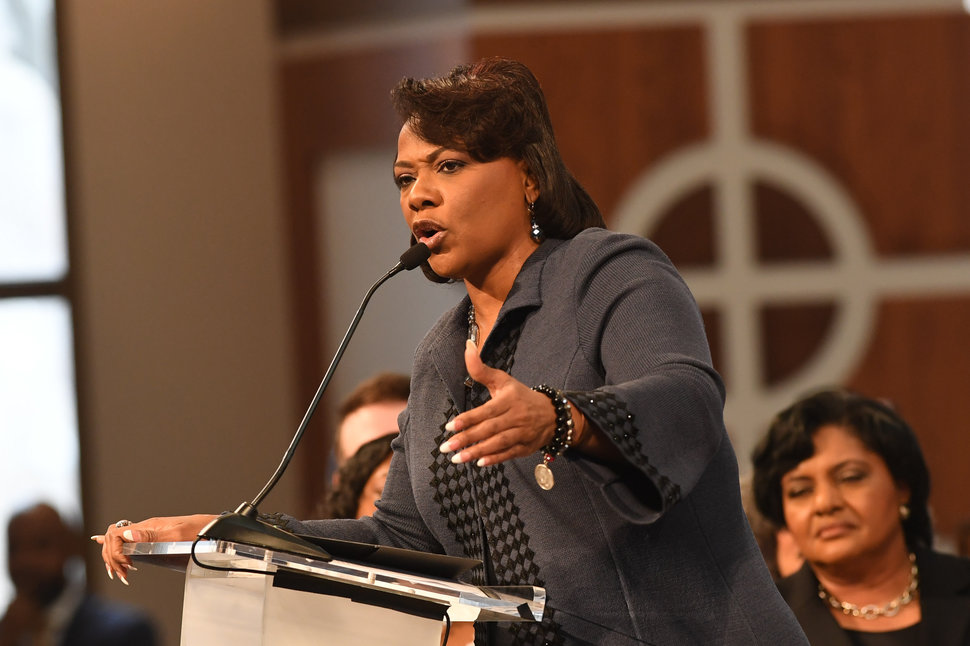
“Always realize that even your strongest advocate and opponent is a part of the human family, albeit they may have small shortcomings, and even strength in them, they are part of that human family,” Bernice said. “And that whatever you do, to stand in truth and justice, you will refuse to even destroy them in the process, because your goal is to make sure that the sacredness of human life is always preserved. That’s Martin Luther King Jr. in a nutshell.”
[ad_2]
Source link

